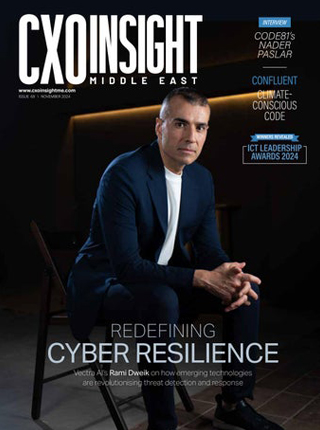Cisco announced plans to establish a data center for cloud-delivered security in the Kingdom of Saudi Arabia (KSA) to help customers protect their users, infrastructure, and investments against threat actors. The announcement is part of Cisco’s continued effort to empower organisations locally and in the region with flexible security services and data protection for devices, remote users, and distributed locations.
The new data center will play a critical role in delivering agile, highly resilient, high-capacity secure access closer to users in KSA. It will support Cisco’s cloud services including its new Secure Service Edge (SSE) solution, Cisco Secure Access. Most organisations rely on a complex web of point products that weren’t designed to support today’s highly distributed environment, and users need to navigate inconsistent access experiences and reauthenticate throughout the day—disrupting productivity. With Cisco Secure Access, decisions about how users connect to the Internet, Software as a Service (SaaS) and private applications are automated, removing that complexity and helping increase productivity.
The announcement reaffirms Cisco’s commitment to a hybrid architecture to rapidly extend its global reach for customers. In KSA, organisations will experience the benefits of Cisco’s co-located edge data center with the scalability of public cloud. The data center will be carrier-neutral, and available on any Internet Service Provider (ISP) in Saudi Arabia. Cisco intends for the data center to have service availability by mid-2024.
“Today’s announcement reconfirms Cisco’s alignment to provide advanced cloud security protection and services to the Saudi community. It builds on Cisco’s long-standing commitment to our customers and reflects our continued support for digital transformation, by using the power of technologies to create a secured thriving digital economy in Saudi Arabia,” Salman Faqeeh, Managing Director of Cisco in Saudi Arabia commented.
Findings of the latest Cisco Security Outcomes Report underscore the importance of security resilience. The report revealed that 54 percent of organisations surveyed in Saudi Arabia experienced a security event that impacted business. The most common incidents were distributed denial of service attacks (60 percent), network or system outages (54 percent) and malicious insider abuse events (40 percent). The global report also states that converging networking and security into a mature, cloud-delivered secure access services edge boosted security resilience scores by 27 percent.










Discussion about this post